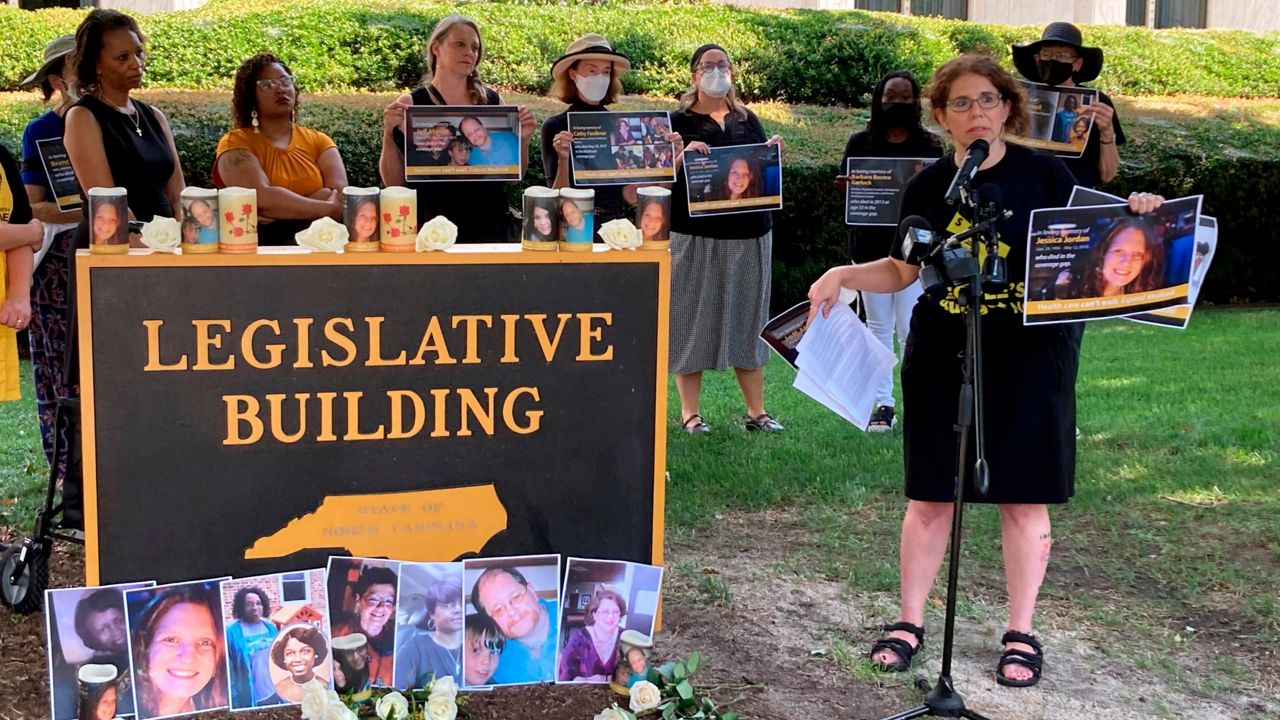RALEIGH, N.C. (AP) — After a decade of vigorous opposition, most North Carolina Republicans have now embraced the idea of expanding the state's Medicaid program to cover hundreds of thousands of additional low-income adults. Legislative approval finally appears within reach.
During the General Assembly session that ended July 1, the GOP-controlled House and Senate passed separate, bipartisan measures by wide margins that would put the state on the path to Medicaid expansion.
Some details remain to be worked out, but there's a real opportunity to hammer out a compromise by year's end.
It's a remarkable political turnabout in North Carolina, sure to be analyzed in the dozen states that have yet to accept the federal government's offer to cover people who make too much to be insured by traditional Medicaid but too little to receive subsidized private insurance.
“If there’s a person in the state of North Carolina that has spoken out against Medicaid expansion more than I have, I’d like to meet that person,” Senate leader Phil Berger said when he sought to explain his reversal at a news conference in May. “We need coverage in North Carolina for the working poor.”
The two chambers couldn’t work out their differences before adjourning, and talks between legislative leaders and Democratic Gov. Roy Cooper — a longtime expansion supporter — have idled since then, at an impasse over other health care reforms that senators seek.
But Berger remains bullish on ultimate success. “I think we'll get there,” he told reporters recently.
“There is a lot of work that needs to be done ... but overall we are feeling extremely encouraged by how far we’ve come,” said Erica Palmer Smith, executive director of Care4Carolina, a coalition of 150 groups that has worked for expansion since 2014.
Other advocates are tired of waiting. They say too many of the working poor are uninsured, risking their health and their lives.
Others on traditional Medicaid worry that without expansion, they'll no longer be covered if they make too much money.
“I don’t know what to do,” said Courtney Crudup, 32, of Oxford, a mother of three and a cosmetologist who is currently unemployed. She spoke this week outside the Legislative Building at an event urging lawmakers to act. “Hear our stories. Hear regular people like me and people that want to work."
The apparent change of heart followed years of GOP suspicion about the 2010 Affordable Care Act, which Republicans derided as “Obamacare” only to see the label, as well as the program, become highly popular.
For years, Republicans said they couldn’t trust Congress to keep the federal government’s promise to pay 90% of the costs of expansion. They said the state’s Medicaid program — now with 2.7 million enrollees — had been overspending for years and was ill-prepared to take on more.
And fundamentally, they argued that more people would become dependent on government if allowed to benefit from Medicaid, which now mostly serves poor children and their parents and low-income elderly people.
Republicans say North Carolina Medicaid spending is now largely under control and they don't think Congress will increase the state's share of the cost beyond 10%.
The state’s portion — perhaps as much as $600 million annually — can be covered by assessments on the state’s hospitals and insurance plans.
Interest also grew when the 2021 COVID-19 federal relief package offered a financial sweetener to encourage the remaining holdout states to accept expansion.
For North Carolina, whose tax coffers already are flush thanks to a roaring economy, it would be an extra $1.5 billion over two years.
“This is an opportunity to take federal dollars, actually present a savings to the state of North Carolina and increase access to health care,” House Speaker Tim Moore told colleagues in June. “I’d call that a pretty good trifecta to do those things.”
Cooper also can take credit for his persistence. He's pushed nonstop for expansion since taking office in 2017, citing the economic shot in the arm the federal money would bring to rural hospitals, communities and families of the 600,000 residents who could qualify.
Cooper went so far as to veto the 2019 state budget because Moore and Berger wouldn’t commit to Medicaid talks. He signed this year's, saying "we are closer than ever to agreement on Medicaid expansion,” and a veto “would be counterproductive.”
A pivotal moment came after the 2020 elections, when Cooper convened a bipartisan commission of medical, business and nonprofit leaders and state legislators that came up with “guiding principles” to improve health care coverage.
"People with quite different political views were willing to listen to those who are coming at these issues from different backgrounds and different concerns,” said Mark McClellan, director of the Duke-Margolis Center for Health Policy at Duke University, which convened the commission.
Another influencer was former Ohio Gov. John Kasich, who told a joint House-Senate committee in March how expansion has worked in his Republican-leaning state.
The committee focused on the details, including how to increase the number of nurses, hospital beds and services in the state.
Negotiations slowed this summer between the House, Senate and Cooper, largely because the Senate wants regulatory changes aimed at providing even more access to services that it says will result in lower costs.
They include giving nurse practitioners, certified nurse midwives and others the ability to work independently from doctors, and scaling back “certificate of need” laws that critics say enable medical providers to limit competition that could bring down their revenue.
Berger blames hospitals for refusing to accept a compromise.
The North Carolina Healthcare Association, representing hospitals and health systems, said it has raised concerns about Berger’s bill, but remains an expansion advocate.
“It’s positive that both chambers now support expansion, and right now hospitals hold the key to getting this done,” Cooper spokesperson Ford Porter said.



